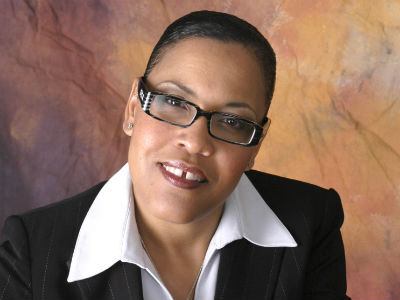What to know about National Guard deployments in Chicago and Portland
News > National News

Audio By Carbonatix
1:50 PM on Monday, September 29
By The Associated Press
Federal agents have been ordered — temporarily — by a federal judge to wear badges and are banned from using certain riot control weapons against peaceful protesters and journalists outside an Chicago-area ICE facility.
A preliminary injunction issued Thursday by U.S. District Judge Sara Ellis restricts agents’ use of force, including pepper balls, rubber bullets and physical force such as pulling, shoving or tackling against protesters and journalists who don’t pose a serious threat to law enforcement.
Ellis’ order covers all of northern Illinois and also requires federal agents to wear “visible identification” such as badges, the subject of heated debate as viral footage has surfaced of masked, plainclothes officers carrying out immigration enforcements in several U.S. cities.
Filed by a coalition of news outlets, media associations and protesters — including the Illinois Press Association, Block Club Chicago and the Chicago Headline Club — the lawsuit accuses U.S. Immigration and Customs Enforcement, the Department of Homeland Security and Border Patrol of unleashing a campaign of violence and intimidation against peaceful protesters and journalists during weeks of protests outside an ICE detention facility in Broadview, Illinois, about 12 miles (19 kilometers) west of Chicago.
Here are where things stand now:
Another federal judge quizzed a Trump administration attorney Thursday on the role National Guard troops would play if deployed in Chicago to assist ICE agents with immigration enforcement.
U.S. District Judge April Perry was hearing arguments in a packed downtown Chicago courtroom from attorneys for the state of Illinois and the Justice Department.
The hearing before Perry was over a request to block the deployment of Illinois and Texas Guard members in Illinois.
Chicago and Illinois filed a lawsuit on Monday to stop the deployments, calling them unnecessary and illegal. In a court filing in the lawsuit, the city and state say protests at a temporary ICE detention facility in Broadview have “never come close to stopping federal immigration enforcement.”
Perry pressed Justice Department lawyer Eric Hamilton on whether National Guard troops would only be stationed around federal buildings or also in neighborhoods, schools and hospitals. Hamilton responded that troops also could be used to “protect ICE agents” in the field.
President Donald Trump, meanwhile, has portrayed Chicago as a lawless “hellhole” of crime, though statistics show a significant recent drop in crime.
Chicago Mayor Brandon Johnson attended the hearing. He later told reporters that he would use every legal tool available to resist, whether that means turning to the courts or issuing executive orders.
“It’s going to take Black, brown, white, Asian folks from across this city and across this country to band together to send a clear message to Washington, D.C., that we will not be trampled on,” Johnson said.
On Wednesday, 200 Texas Guard troops sent to Illinois started working in the Chicago area, according to a U.S. Northern Command spokesperson, who spoke to The Associated Press on condition of anonymity to discuss operational details not made public.
The spokesperson did not say where specifically the troops were sent.
Meanwhile, two dozen Democrat-led states have joined a legal challenge to National Guard deployment in Portland, Oregon.
Pope Leo XIV urged labor union leaders visiting Rome from Chicago on Thursday to advocate for immigrants and welcome minorities into their ranks. Leo said that “while recognizing that appropriate policies are necessary to keep communities safe, I encourage you to continue to advocate for society to respect the human dignity of the most vulnerable.”
The audience was scheduled before Wednesday’s deployment of National Guard troops in the Chicago area. The pope is a native of Chicago.
Twenty-four states with a Democratic attorney general or governor signed on to a court filing Wednesday to support California and Oregon’s legal challenge to deploying the Guard in Portland.
Trump wants to send Guard troops to Portland to address ongoing protests at an immigration processing facility in Oregon's largest city, which he has called a “war zone.”
Troops have yet to be deployed there.
An appeals court has scheduled arguments for Thursday in the government’s bid to overcome a lower court’s ruling blocking the Guard’s deployment.
The first Guard troops sent to Chicago by Trump arrived Tuesday at an Army training center outside the city. The AP saw military personnel in uniforms with the Texas National Guard patch at the U.S. Army Reserve Center in Elwood, 55 miles (88 kilometers) southwest of Chicago, on Wednesday.
Gov. JB Pritzker, a Democrat, has said some 300 of the state’s Guard troops were to be federalized and deployed to the nation’s third-largest city, along with 400 others from Texas.
Trump claims troops are needed to protect federal immigration enforcement efforts and crack down on crime.
Since the start of his second term, the Republican president has sent or discussed sending troops to 10 cities, including Portland, Oregon; Baltimore; Memphis, Tennessee; the District of Columbia; New Orleans; and the California cities of Oakland, San Francisco and Los Angeles.
___
Associated Press reporters across the U.S. contributed, including Claire Rush in Portland, Oregon; Rebecca Boone in Boise, Idaho; Sophia Tareen in Chicago; Jack Brook in New Orleans; Christopher Weber in Los Angeles; and Josh Boak and Konstantin Toropin in Washington.












